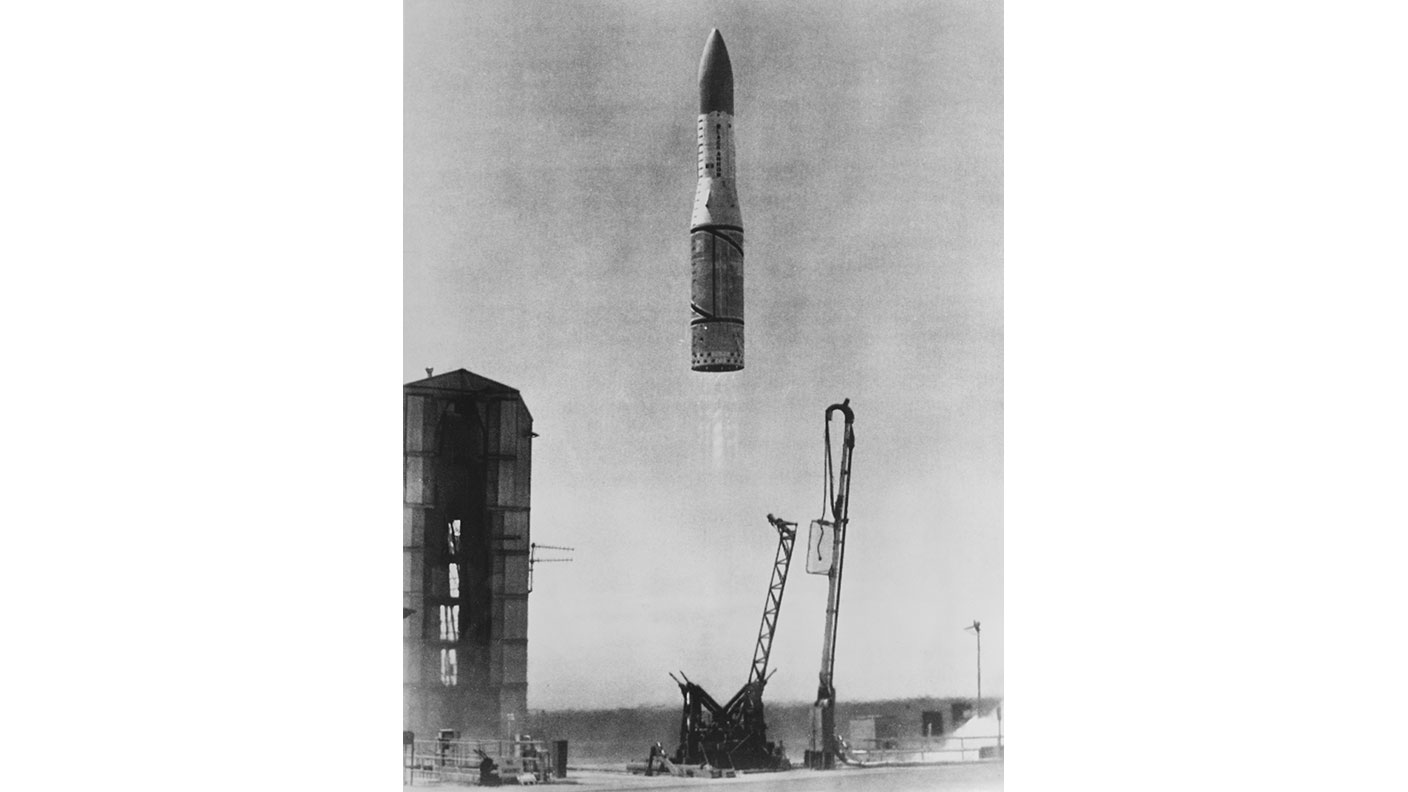
Get the latest financial news, insights and expert analysis from our award-winning MoneyWeek team, to help you understand what really matters when it comes to your finances.
You are now subscribed
Your newsletter sign-up was successful
Want to add more newsletters?

Twice daily
MoneyWeek
Get the latest financial news, insights and expert analysis from our award-winning MoneyWeek team, to help you understand what really matters when it comes to your finances.

Four times a week
Look After My Bills
Sign up to our free money-saving newsletter, filled with the latest news and expert advice to help you find the best tips and deals for managing your bills. Start saving today!
The phrase "British space programme" conjures up the image of a couple of bearded boffins welding dustbins and electronics parts in a lock-up garage in Swindon or somewhere. In 1971, that wasn't too far off the mark. But they did manage to get a satellite up into space.
It all began with an attempt to build a British nuclear ballistic missile. But after developing the “Blue Steel”, “Blue Streak” and “Black Knight” missiles, the programme was cancelled. The government decided it would be cheaper to buy off-the shelf nukes from America instead. From now on, all our spacebound efforts would be civilian, the government decided.
And so the Black Arrow delivery rocket was developed from 1964 by Saunders Roe, more famous for its efforts in building hovercrafts. It used some of the technology from the earlier missiles, and was tested in the rocket testing station built into the cliffs overlooking the Needles rocks off the Isle of Wight. Money was tight, however, and only five rockets were built, and only two satellites.
MoneyWeek
Subscribe to MoneyWeek today and get your first six magazine issues absolutely FREE

Sign up to Money Morning
Don't miss the latest investment and personal finances news, market analysis, plus money-saving tips with our free twice-daily newsletter
Don't miss the latest investment and personal finances news, market analysis, plus money-saving tips with our free twice-daily newsletter
By 1969, it was ready to test from Woomera in Australia. The first launch went badly, and the rocket had to be remotely destroyed after it spun out of control. The second test passed with no bother, but the third launch, carrying one of the programme's two satellites, failed, plunging into the sea.
Then, on 29 July 1971, the government announced it was cancelling the programme. With the fourth rocket and second satellite already on the way to Australia, it was decided it would be more expensive to turn round, bring them back and decommission them than it would be to launch.
And so, the fourth and final launch went ahead on this day in 1971. The Black Arrow shot up and deployed the "Prospero" satellite, designed to test the effects of space on communications satellites. It was, and remains, Britain's only independently launched satellite. It operated until 1973, when it was shut down. It was contacted annually until 1996, when the ground station was decommissioned, and the access codes apparently lost. It is still there, silently circling the earth, 45 years after its launch.
Get the latest financial news, insights and expert analysis from our award-winning MoneyWeek team, to help you understand what really matters when it comes to your finances.

-
 Should you buy an active ETF?
Should you buy an active ETF?ETFs are often mischaracterised as passive products, but they can be a convenient way to add active management to your portfolio
-
 Power up your pension before 5 April – easy ways to save before the tax year end
Power up your pension before 5 April – easy ways to save before the tax year endWith the end of the tax year looming, pension savers currently have a window to review and maximise what’s going into their retirement funds – we look at how
-
 31 August 1957: the Federation of Malaya declares independence from the UK
31 August 1957: the Federation of Malaya declares independence from the UKFeatures On this day in 1957, after ten years of preparation, the Federation of Malaya became an independent nation.
-
 13 April 1960: the first satellite navigation system is launched
13 April 1960: the first satellite navigation system is launchedFeatures On this day in 1960, Nasa sent the Transit 1B satellite into orbit to provide positioning for the US Navy’s fleet of Polaris ballistic missile submarines.
-
 9 April 1838: National Gallery opens in Trafalgar Square
9 April 1838: National Gallery opens in Trafalgar SquareFeatures On this day in 1838, William Wilkins’ new National Gallery building in Trafalgar Square opened to the public.
-
3 March 1962: British Antarctic Territory is created
Features On this day in 1962, Britain formed the British Antarctic Territory administered from the Falkland Islands.
-
10 March 2000: the dotcom bubble peaks
Features Tech mania fanned by the dawning of the internet age inflated the dotcom bubble to maximum extent, on this day in 2000.
-
9 March 1776: Adam Smith publishes 'The Wealth of Nations'
Features On this day in 1776, Adam Smith, the “father of modern economics”, published his hugely influential book The Wealth of Nations.
-
 8 March 1817: the New York Stock Exchange is formed
8 March 1817: the New York Stock Exchange is formedFeatures On this day in 1817, a group of brokers moved out of a New York coffee house to form what would become the biggest stock exchange in the world.
-
7 March 1969: Queen Elizabeth II officially opens the Victoria Line
Features On this day in 1969, Queen Elizabeth II took only her second trip on the tube to officially open the underground’s newest line – the Victoria Line.
